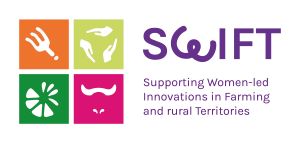Women-Led Innovations Hub
SWIFT was formed as a consortium of academic, peasant, and social organisations and individuals to strengthen the processes of articulation of women and diversities in the European territory. Therefore, exchanges between and strengthening of networks including peasant women are crucial in the project, as well as the connection with other reference initiatives such as those developed in other territories like Brazil or the United States.
These organisations of peasant and livestock women take the name of “Women-led Innovations” or WLI, generally referring to initiatives within agri-food systems in which women and diversities take a central role, leadership and/or share a feminist position, built to challenge structural inequalities in agriculture in rural areas. In SWIFT, Women-Led Innovations (WLIs) in agriculture are defined as grassroots innovations built to challenge structural inequalities in agriculture in rural areas. Many of the WLI that are the focus of SWIFT have emerged under the broad umbrella of alternative food networks and have demands connected to the human right to adequate food.
Central to SWIFT are the 16 WLI in 12 countries distributed within the main European biogeographical and social and political areas, but also outside Europe (Brazil, USA).


Maggie Cheney grew up growing and loving food. With farmer parents, they have been involved with food and farming throughout their whole life, both in urban and rural spaces. In 2015 they co-founded Rock Steady Farm, a queer owned and operated cooperative vegetable farm rooted in social justice, food access and farmer training in Millerton, NY. Rock Steady has a 500 person CSA (Community Supported Agriculture), half of which are lower income members made possible
through their sliding scale and Food Access Fund, which fully subsidized shares for specific community partnerships. Rock Steady also trains LGBTQ+ beginning and aspiring farmers through virtual and weekend workshops, and an exciting program called POLLINATE! which is a two week paid educational farm immersion specifically for LGBTQ+ farmers.
Prior to Rock Steady they moved to NYC in 2011, where they met many of the Rock Steady farmers and Community partners while working within a diversity of food justice and youth leadership programs, including The Bushwick Campus Farm, the NYC Youth Food Policy Council and Youth Food Justice Network. In addition they also started the North East Queer Farmer Alliance, which now has over 400 members. Maggie was also instrumental in the formation of the Food Sovereignty Fund, which funds food access projects across New York State by sourcing from specifically BIPOC and LGBTQIA+ farmers. In the off season they teach, now for the
9th year, at Farm School NYC, an urban agriculture training program, as well as continue to support the efforts and inspiring work of Rise & Root Farm, which they co-founded in 2014.
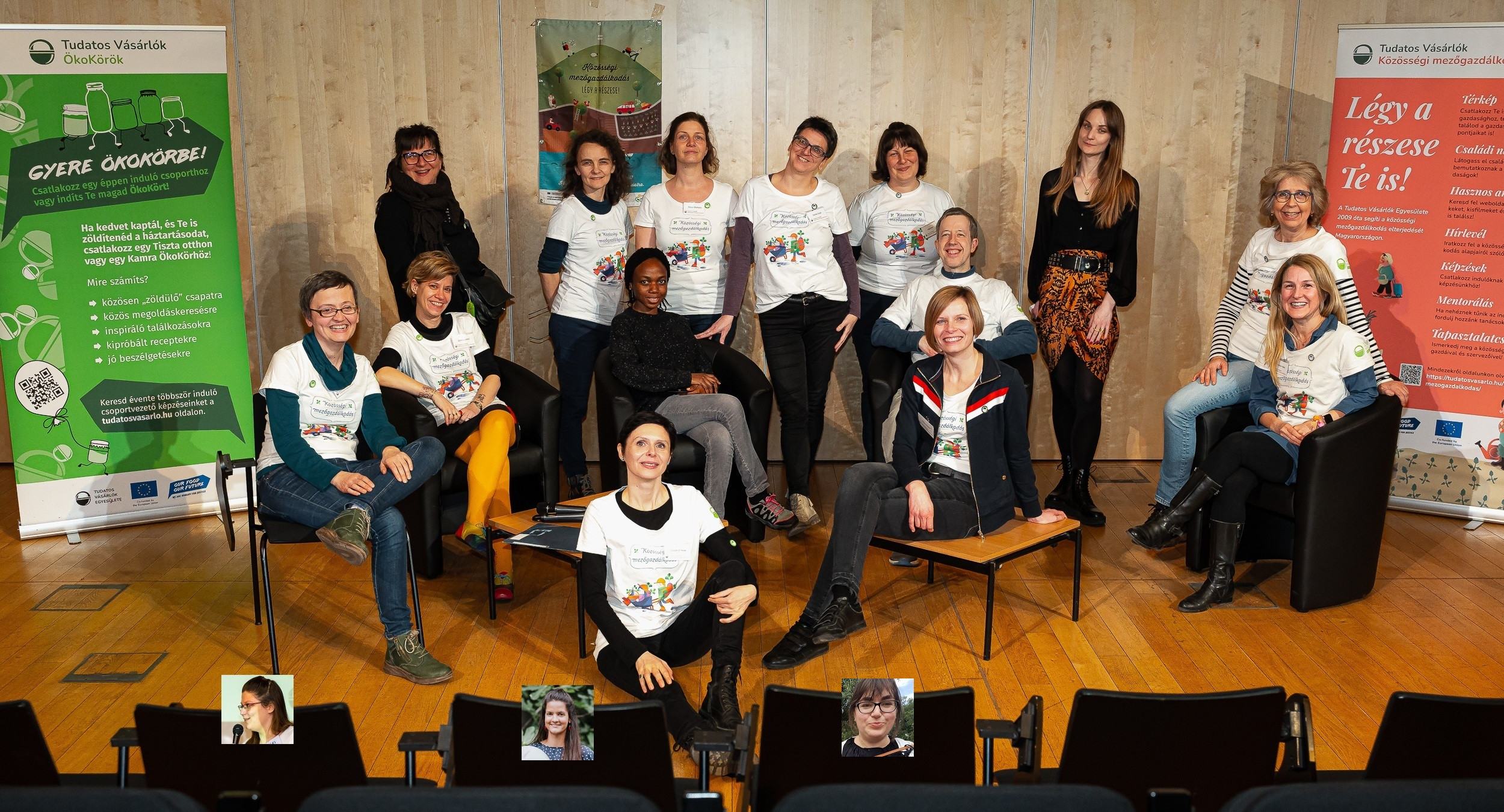
The ACC has been promoting sustainable, circular, ethical and fair consumption and lifestyle choices in Hungary since 2001. ACC also coordinates the Community Supported Agriculture movement in Hungary.
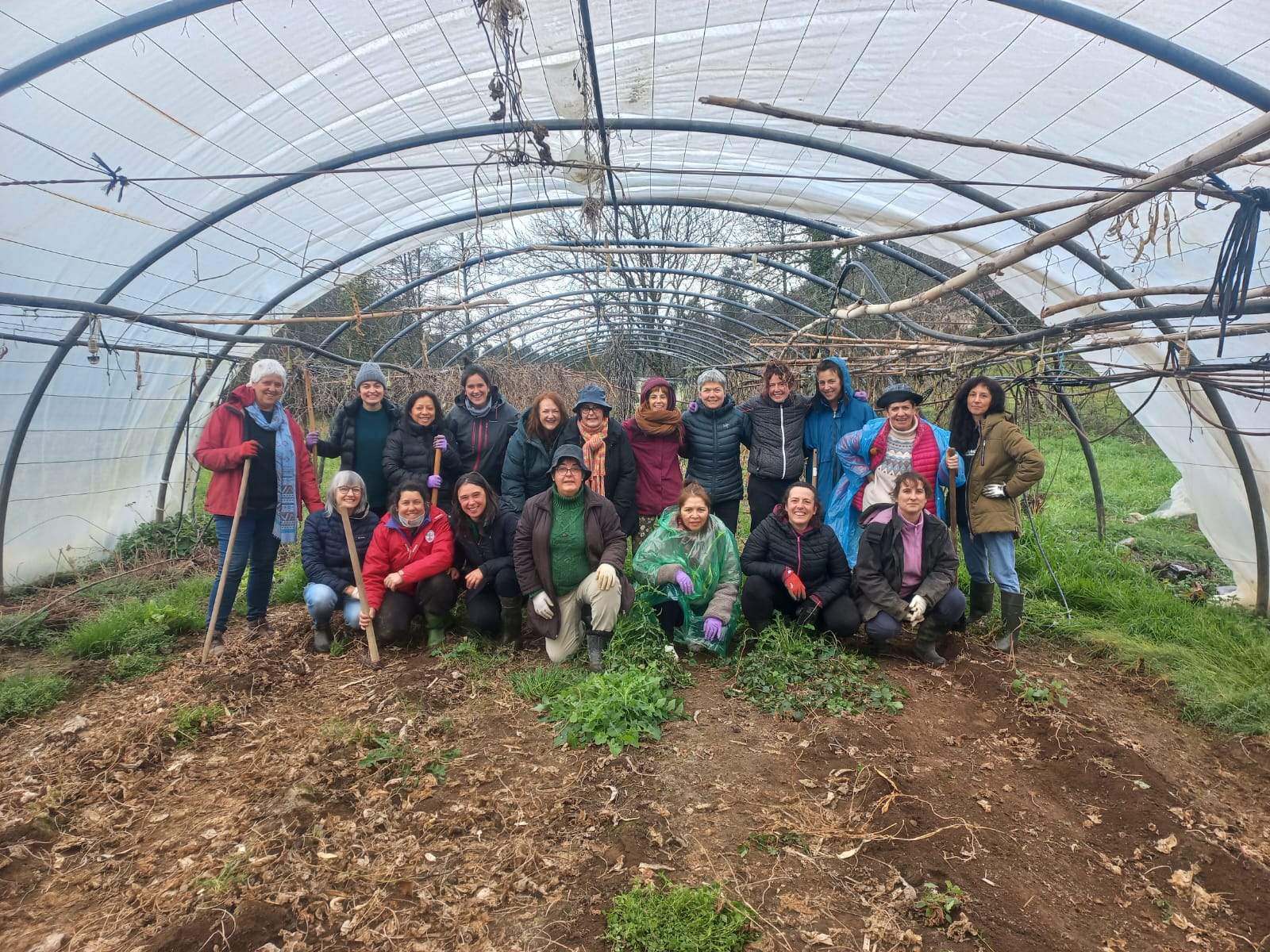
EHNE Bizkaia is an agricultural union with a history of more than 40 years, and whose main objective is to promote food sovereignty in the Basque Country. Food sovereignty is a key principle that implies decision power, linked to what a well-informed society wants: agro-ecological food production that is close to the people, guarantees health, food quality, relations of respect and equality, care for the environment, as well as care for the environment, as well as employment and a living rural world.

We are farmers, and we are passionate about farming. But more importantly, we are a growing and flourishing network of farmers for the future. Amongst us are agricultural newcomers, as well as established farmers who are exploring new ways of farming. We are pioneers in new models and methods, such as community supported agriculture, permaculture and growing special breeds and varieties. We work in harmony with people and nature to practice agriculture and create food systems which benefit both farmers and citizens alike.
FARMERS FOR THE FUTURE is the translation of Toekomstboeren; the name of our Dutch association. Toekomstboeren gives these farmers for the future a voice and supports them in their struggle. Because it is not easy being a farmer: land is expensive, regulations are strict and policies more suited for large-scale industrial agriculture. That is why we focus on sharing positive examples of alternative solutions: to support our members in achieving their farming dreams, and to inspire others to do the same.
What we do is driven by our members. We give voice to their needs and wants, and rely on their skills and capacity to make things happen. As a young organisation we want to grow organically and make sure we stay closely connected to our members. We focus on a few key topics and develop structural programs of activities, which are always open to change and development.
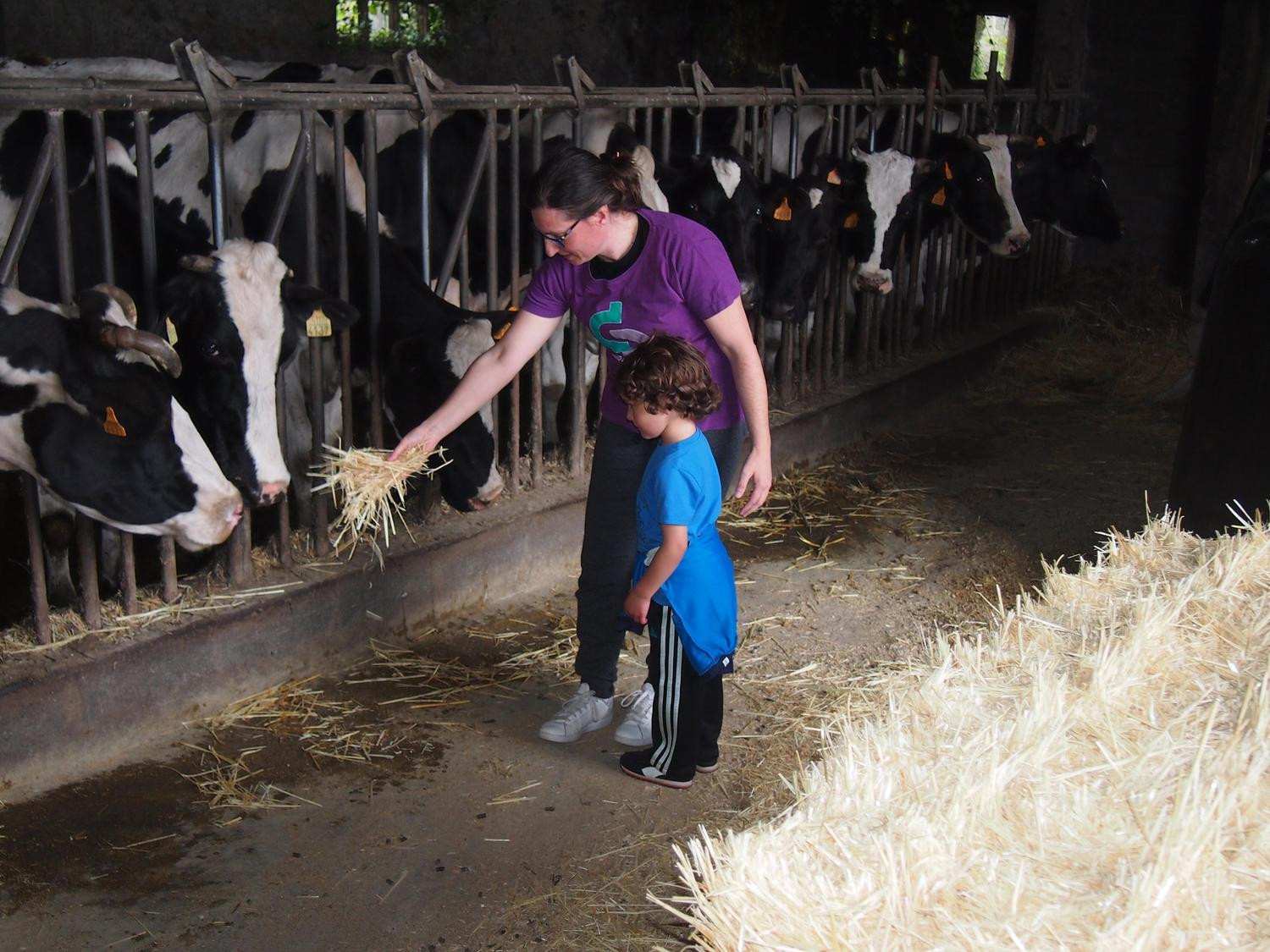
The Sindicato Labrego Galego, SLG-CC.LL, operates in Galicia, where small farms are the vast majority. There is a large number of small farms for self-consumption and sale of surpluses in local markets.
These small farms have a very strong gender component, as the people who do the farming and livestock are mostly women.
We believe that social support (technical, political, social…) can facilitate participations that maintain employment and generate resources. However, it is necessary to implement support policies at both the productive level (food security) and at the commercial level, by integrating into local markets.
On the other hand, there is an important part of family farms in another stage of production, which are found in conventional marketing channels, but due to the low prices and the limitation to grow, they are in danger. These people, with technical and social support, can look for ways out by switching to quality production and ecological production models.
As a feminist organisation, we consider equality to be fundamental in the organisation and we specifically defend women’s rights at all levels.
The SLG is part of Via Campesina International, European Coordination Via Campesina and COAG.

We are the women’s group of ÖBV-Via Campesina Austria, which exists since the end of the 1970s. We deal with different feminist topics, that are relevant to us as women farmers and activists. Our vision is a good life for all (Buen vivir). We are working and fighting for self-determination of women in agriculture – on their farms, in their communities and for just and feminist policies (interconnection of agricultural, climate, rural, women policies etc.). For as it’s important to support and enable each other, to use creative methods and to fight joyfully.
We are part of the ÖBV – Österreichische Berg- und Kleinbäuer_innen Vereinigung (Austria mountain farmers and peasants organisation) which was founded in 1974. The ÖBV is the mouthpiece and political home of peasants and other people throughout Austria who are committed to a future for the peasant way of farming and to a good life for everyone. As mountain farmers and peasants, we network and represent our interests together. With education and public relations work, we make interconnections visible and work together on future perspectives for agriculture. We support the self-empowerment of people who work in agriculture.


The National Confederation of Agriculture – CNA, was created at the “Meeting of Farming Organizations and Farmers of Minho, Douro, Trás-os-Montes, Beiras and Delegations from other Provinces”, held on February 26, 1978, in Coimbra.
It has a programmatic and historical basis in the “Carta da Lavoura Portuguesa”, approved there. From then on, it has been a lifetime, done every day, “Always with the Farmers”, as is their most affectionate motto. The national headquarters of the National Confederation of Agriculture is located in Coimbra.
The CNA defines itself as the “organized expression, predominantly, of family farmers”. Among other principles, it assumes “current concerns about the construction of an agriculture that responds to the demands of product quality, defense of the environment, the rural world, health, work and that promotes the improvement of income and quality of life of Portuguese farmers”. The CNA is fundamentally made up of Farmers’ Associations, although it also includes other Associations focused on the broader scope of rural development and women organization.
At European level, CNA is affiliated with the European Coordination Via Campesina – ECVC, which brings together Organizations from different countries in Europe. In turn, ECVC belongs to Via Campesina, a peasant movement that is structured on a global scale. During its already “long” life of 47 years, the CNA and the many thousands of male and female farmers who identify with the CNA, gave and continue to give a persistent testimony of conviction, work, resistance, but also of hope, fighting tirelessly in defense of Family Farming and the Portuguese Rural World.
CNA represents and promotes the socio-professional interests of Farmers. To this end, it also provides a wide range of technical and professional services and participates in several “consultation and consultation” bodies, with emphasis on the CES, Economic and Social Council. The history of the CNA is marked by nine Congresses and five Meetings, by dozens of national initiatives, hundreds of meetings and demonstrations (regional and national), by thousands of Farmers’ meetings, advances and setbacks, joys and sadness, moments of hope and concern, for proposals and complaints!
Just like yesterday, today, plowing tomorrow, CNA, “Always with the Farmers”, is standing here, united in action!
CNA represents and promotes the socio-professional interests of Farmers. To this end, it also provides a wide range of technical and professional services and participates in several “consultation and consultation” bodies, with emphasis on the CES, Economic and Social Council. The history of the CNA is marked by nine Congresses and five Meetings, by dozens of national initiatives, hundreds of meetings and demonstrations (regional and national), by thousands of Farmers’ meetings, advances and setbacks, joys and sadness, moments of hope and concern, for proposals and complaints!

Uniterre is a farmers’ organisation with over 1,000 members. It plays a central role in information and mobilisation between different levels, from farms, to local sections, to committees, national and international representative organisations (membership of the European Coordination Via Campesina, La Via Campesina and the European Milk Board (EMB)). Uniterre defends the principle of food sovereignty. It seeks to develop an extensive farmers’ and citizens’ movement around agricultural and food issues, by defending peasant farming that is remunerative, diversified and close to the people. It organises advocacy and information campaigns for farmers and the general public, and lobbies institutions and politicians. Uniterre enjoys growing credibility in the debate on agriculture at national level, strengthened by its membership of Via Campesina, which campaigns for the rights of peasants and the implementation of the United Nations Declaration on the Rights of Peasants and Other People Working in Rural Areas. In this respect, Uniterre occupies a unique position in the Swiss agricultural policy landscape.
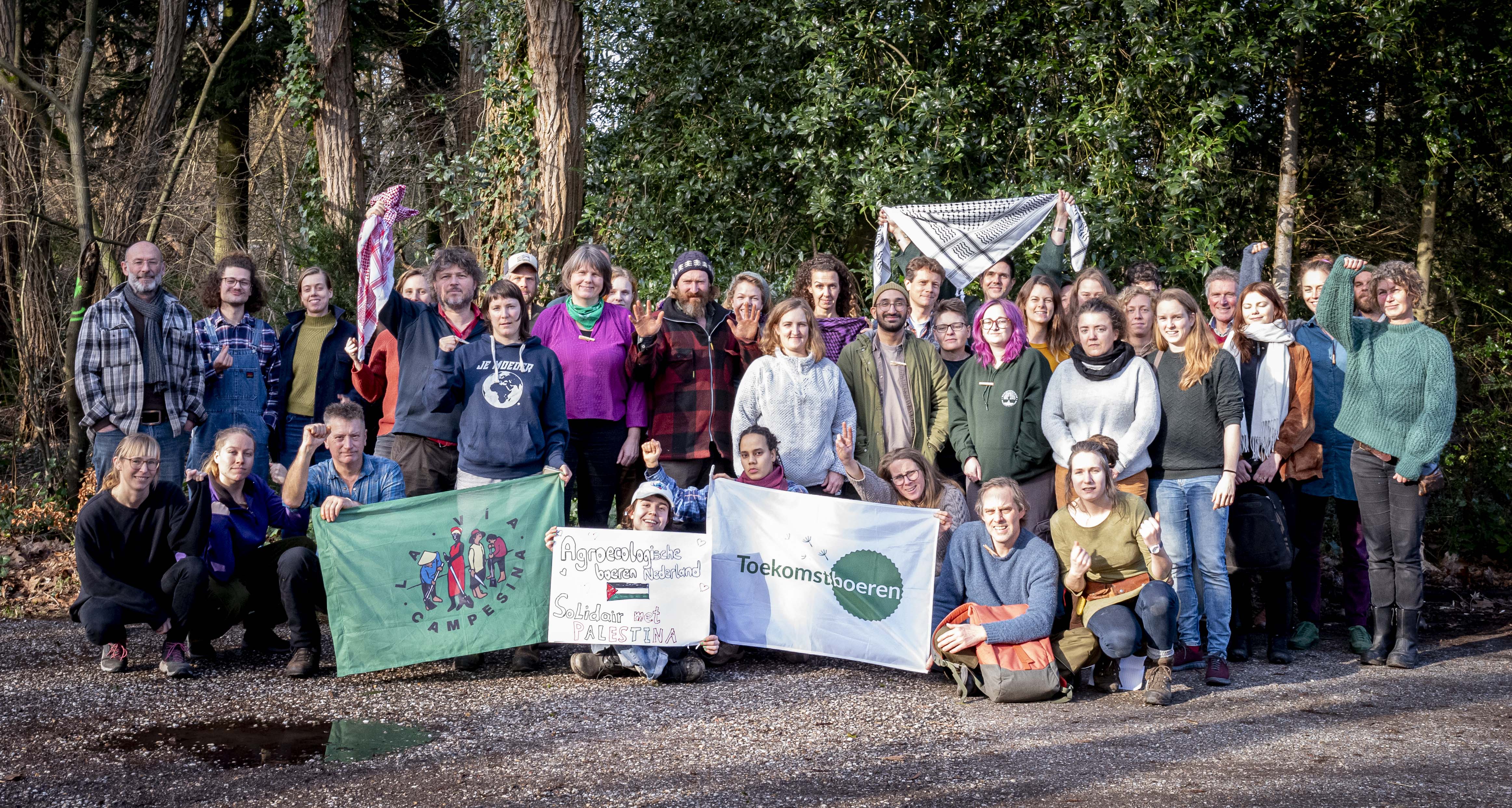
Federatie van Agro-ecologische Boeren (Netherlands)
In practice, this is reflected in attention to biodiversity and natural pest management, the closing of cycles and care for healthy soil. In short food networks and direct contact with consumers, local and national cooperation and knowledge sharing. In seeking solutions that look at the whole and provide space for the diversity of farmer and consumer.
We align ourselves with the definition of agroecology as established in the Nyéléni Declaration. Our mission is:
- To strengthen the position of agroecological agriculture.
- Connecting different parties (practitioner/farmer organizations, knowledge institutes, eaters) around agroecology and giving farmers a voice within these parties.
- Representing the interests of agroecological farmers; think access to land, influence policy
- Exchanging knowledge about farmer practices of agroecology
- Strengthening the movement for agroecology
